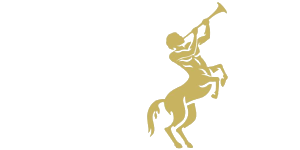-
"Survey return from Alexander Fraser"
Kirkhill, by Inverness.
1850.
RCP/COL/4/8/59
Alexander Fraser was a church minister to Kirkhill parish.
Kirkhill consisted of two united parishes, Wardlaw and Farnua, and lay in the historic County of Inverness. In 1831, the population was 1715 and the main industry was agriculture. The parish exported grain and timber, while importing coal and lime via a coastal harbour.
[[Addressee]]
The Revd
Alexr. Fraser
Kirkhill
By Inverness
[[Survey]]
QUERIES
1. How many Medical Men practice within the Parish of Kirkhill?
There is no Medical Practitioner resident in the Parish of Kirkhill. Dr. Cormick from Beauly (a village in Kilmorack 4 or 5 miles distant from the centre of Kirkhill parish) is pretty generally employed. Some employ Medical men from Inverness.
2. The Names and Addresses of these.
Dr Cormick. Beauly by Inverness.
3. Has the number increased or diminished of late years?
There was no Medical man so near as Beauly till within the last 15 years.
4. Have any left the Parish since you became connected with it? If so, for what reasons?
No
5. Is there any complaint among the people of inadequacy in the supply of Medical aid?
Not, that I am aware of.
6. Do you know of any cases of protracted suffering, or of injury by Accident, such as might have been alleviated had proper advice been at hand?
No, such cases are usually sent to the Northern Infirmary at Inverness1.
7. To what extent is the deficiency of qualified Practitioners made up by the efforts of other parties?
Two individuals are frequently employed in blood-letting2, and administering simple medicines in simple cases.
8. Does your experience enable you to suggest any measure – of general applicability – such as would be likely to relieve to some extent the evils (if they exist) of deficiency in the supply of Medical aid?
[no text]
9. What Heritors3 are resident, either generally or occasionally, in your Parish?
J. B. Fraser Esqr of Relick
J. P. Clark Esqr of Fingask
Explanatory notes:
1. The Royal Northern Infirmary, Inverness, opened in 1804.
2. Bleeding, or bloodletting, is the withdrawal of blood from a patient to prevent or cure illness and disease. This was a common medical practice in the 1800s, dating back to antiquity, and was often carried out by unlicensed healers as well as qualified physicians.
3. A heritor was a landowner, under Scots Law, whose holdings were sizeable enough for them to be liable for the payment of public burdens such as Poor Law rates, road and bridge assessments and the church minister’s stipend.
